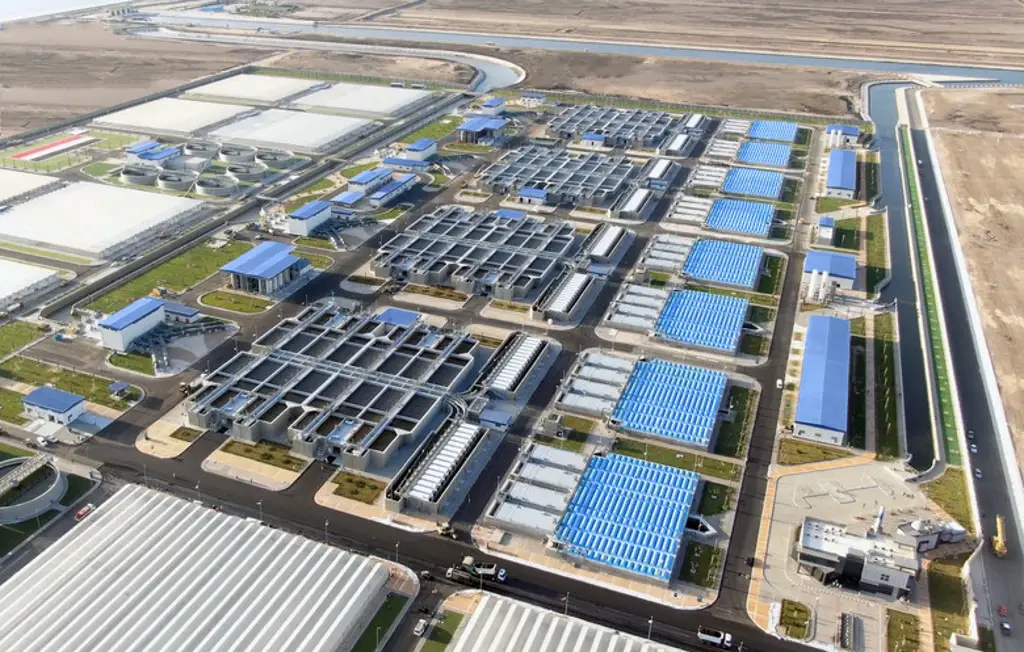The President of the Republic of Egypt, Abdel Fattah El Sisi, recently commissioned Bahr El Baqar wastewater treatment plant, the largest of its kind not only in the African country but in the entire world, with a treatment capacity of 5 million cubic meters per day.
With the joint venture of Orascom Construction and Arab Contractors as the lead contractor under a US$ 739M agreement signed with the Armed Forces Engineering Authority back in 2019, the plant comprises four water treatment lines with a daily processing capacity of 1,250,000 cubic meters each.
It is equipped with advanced processes for pumping raw water, coagulation, flocculation, decantation, filtration, and disinfection.
How the Bahr El Baqar wastewater treatment plant will work
The Bahr El Baqar wastewater treatment plant will collect domestic, industrial, and agricultural wastewater that flows along the Bahr al-Baqar Drain, which meanders 106 km from Dakahlia Governorate to Sharqia and from Ismailia Governorate to Port Said Governorate.
Also Read: Egypt awards contract for construction of Maghagha wastewater treatment plant
The effluent will then pass through the four treatment lines before being made available to farmers for irrigation. The government of the North African country estimates that the treated wastewater from the Bahr El-Baqar treatment plant will irrigate at least 168,000 hectares of land in the Sinai Peninsula.
A part of the Sinai development program
The Bahr El Baqar wastewater treatment plant project, which also involved the construction of pumping stations and a water carrier, is part of the Sinai development program that is a set of infrastructure projects and development initiatives aimed at strengthening the local economy and raising the standard of living for people living in the said region.
The project was funded through a public-private partnership where the private sector provided two-thirds of the overall funding and the government provide the remainder.
